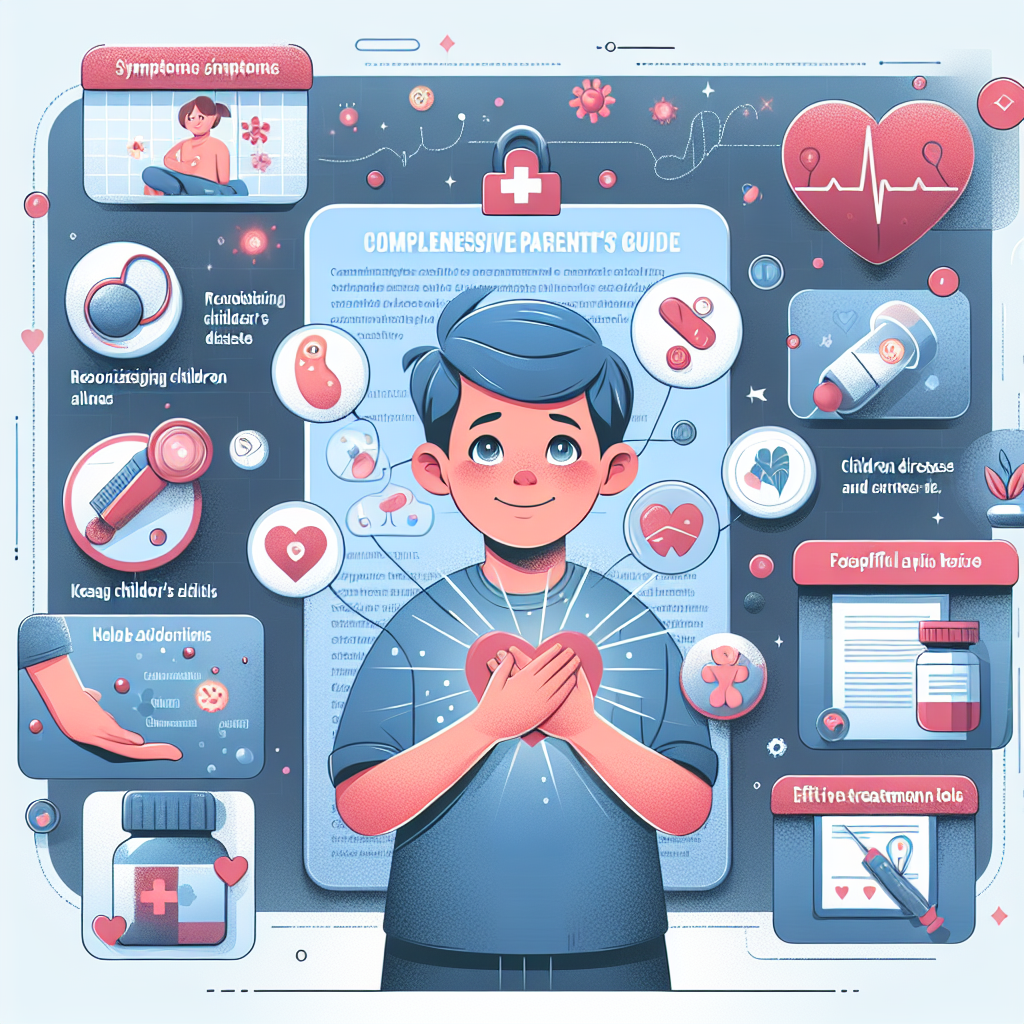Recognizing and Treating Childhood Illnesses: A Parent's Guide
When it comes to children's health, parents are the first line of defense. Understanding the signs, symptoms and appropriate treatments for various childhood illnesses is essential to ensure a quick and effective recovery. This guide is designed to arm you with the information needed to navigate the challenges that childhood illnesses can present.
Motor Development
Each child develops at their own unique pace, and motor development is often an indicator of overall health. In the early years of life, children progress from simple movements such as stretching their arms to more complex skills such as walking and running. When a child experiences an illness, these skills can be temporarily compromised. For example, coordination problems or muscle weakness can signal more serious problems, such as a vitamin deficiency or infection.
Parents should monitor their children's progress and look for signs of delay or regression in motor development. Noticing these changes can be vital in early recognition of a health problem.
Language development
Language is another important aspect of child development. Babies start babbling sounds and syllables a few months after birth and gradually develop their vocabulary and communication skills. Disruptions in this process, such as speech delays or difficulty understanding language, can signal a health problem.
Conditions such as otitis media, which cause pain and can affect hearing, can have a direct impact on language and communication development. Parents should be aware of the normal stages of language development and seek professional help if they suspect their child is not meeting these stages.
Recognizing Common Symptoms
Some of the most common childhood illnesses include the common cold, flu, ear infections, chicken pox and measles. Each of these has specific signs, from fever, coughing and sneezing to rashes and body aches. Parents should learn to identify these symptoms and understand when it is a sign of a minor illness and when it could indicate something more serious.
It is also important to know the warning signs for conditions that require immediate medical attention, such as difficulty breathing, profound lethargy, or a very high fever.
Treatments and Prevention
For most minor childhood illnesses, treatment can be managed at home. Simple measures such as rest, hydration and taking antipyretics can facilitate recovery. In situations where a bacterial infection is suspected, it may be necessary to take an antibiotic prescribed by the pediatrician.
Prevention remains the most effective strategy in the fight against childhood diseases. Routine vaccinations, hand washing and avoiding exposure to sick people are some of the measures that can significantly reduce the risk of illness.
Periodic Medical Consultations
Regular medical check-ups are crucial for monitoring your child's health and development. These consultations allow the doctor to detect and address any potential health problems before they become serious. Parents are encouraged to follow the visit schedule recommended by their pediatrician.
Parental Education
Last but not least, it is essential for parents to be well informed. Attending pediatric first aid classes, reading educational material, and asking the pediatrician for clarification are all ways that parents can be prepared to act when childhood illnesses arise.
Conclusion
Childhood illnesses can be a source of anxiety for any parent. But with the right understanding of symptoms, treatment approaches, and prevention measures, you can ensure proper care and support for your little one. Always remember that your pediatrician is your partner in keeping your child healthy, and don't hesitate to seek their advice whenever you have doubts or concerns. Effective management of childhood illnesses is essential for a happy and healthy childhood.














































































































































